Palliative care

What is palliative care?
Palliative care is specialised medical support intended to improve the quality of life for those with serious illnesses like cancer or heart failure.
It addresses targeted relief for symptoms and complements curative treatments, helping to alleviate the stress of the illness for both patient and their family.
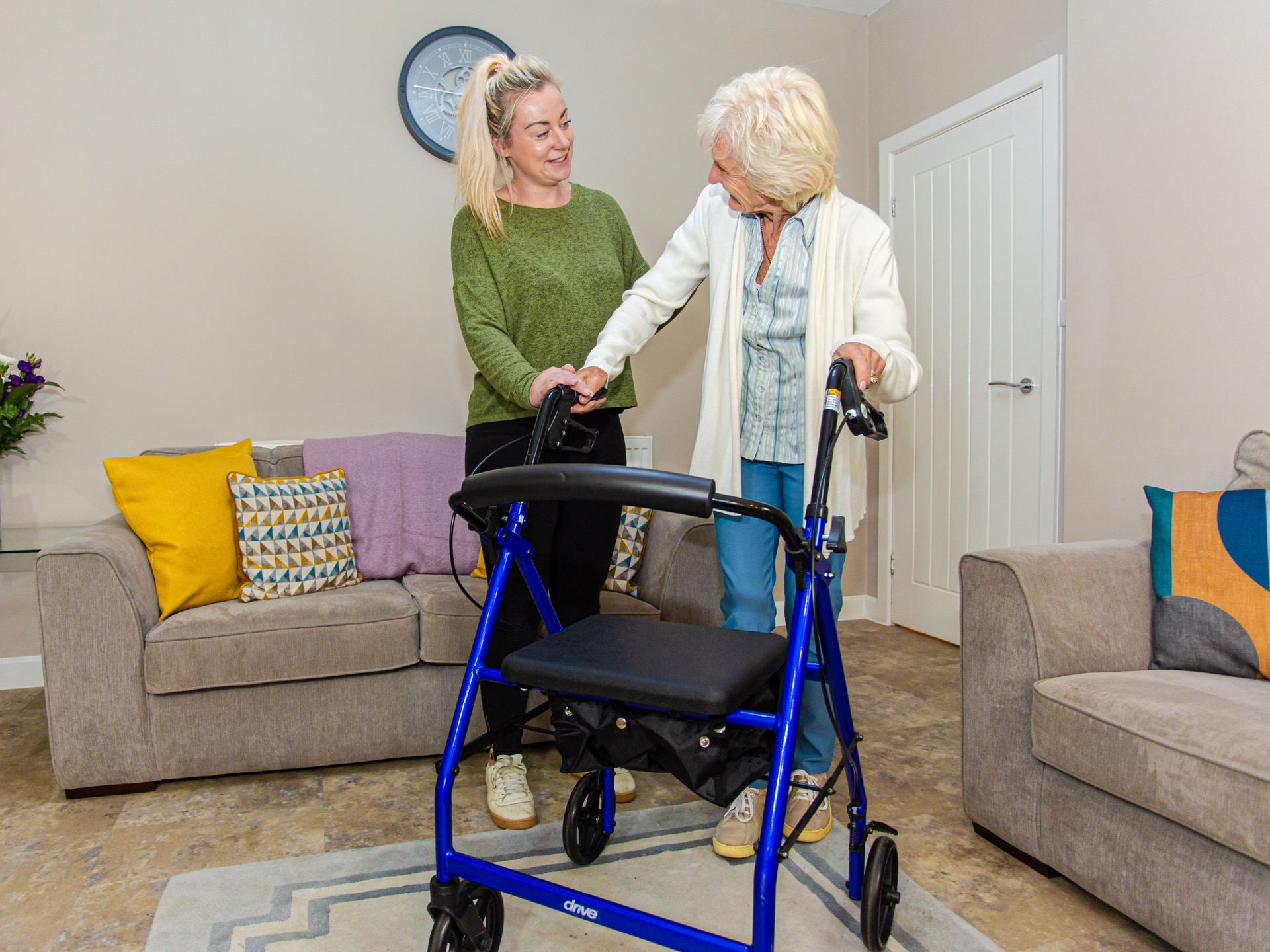
Specialist palliative care, tailored to your needs
Our specialist palliative care allows your family to make the most of your time together.
Palliative care at home allows you to stay in the place you feel most comfortable, surrounded by memories and the people you love. With one-to-one support from a compassionate carer who has been trained in end-of-life care, you can have specialist support and symptom relief from serious illness, whenever it is needed.

Palliative care can support you with:
Personal care
We can assist with all aspects of personal and continence care, from managing a stoma or a catheter to helping with bathing and dressing
Symptom management
Our palliative carers are trained to help you manage any painful symptoms you may be living with, allowing you to live in comfort
Administering medication
Your palliative carer can assist with medication support – whether that’s collecting it for you, organising it or actually helping administer it
Preparing meals
A palliative carer can cook healthy, balanced meals to ensure you’re getting all the nutrients you need, and prepare your favourite meals and snacks
Valued companionship
Having a friendly, trusted companion can go a long way to supporting your emotional well-being, as well as being a source of comfort and reassurance
Mobility support
Our carers receive full training in providing safe and practical mobility support, helping you to move around your home securely and confidently
Dedicated support for medical conditions
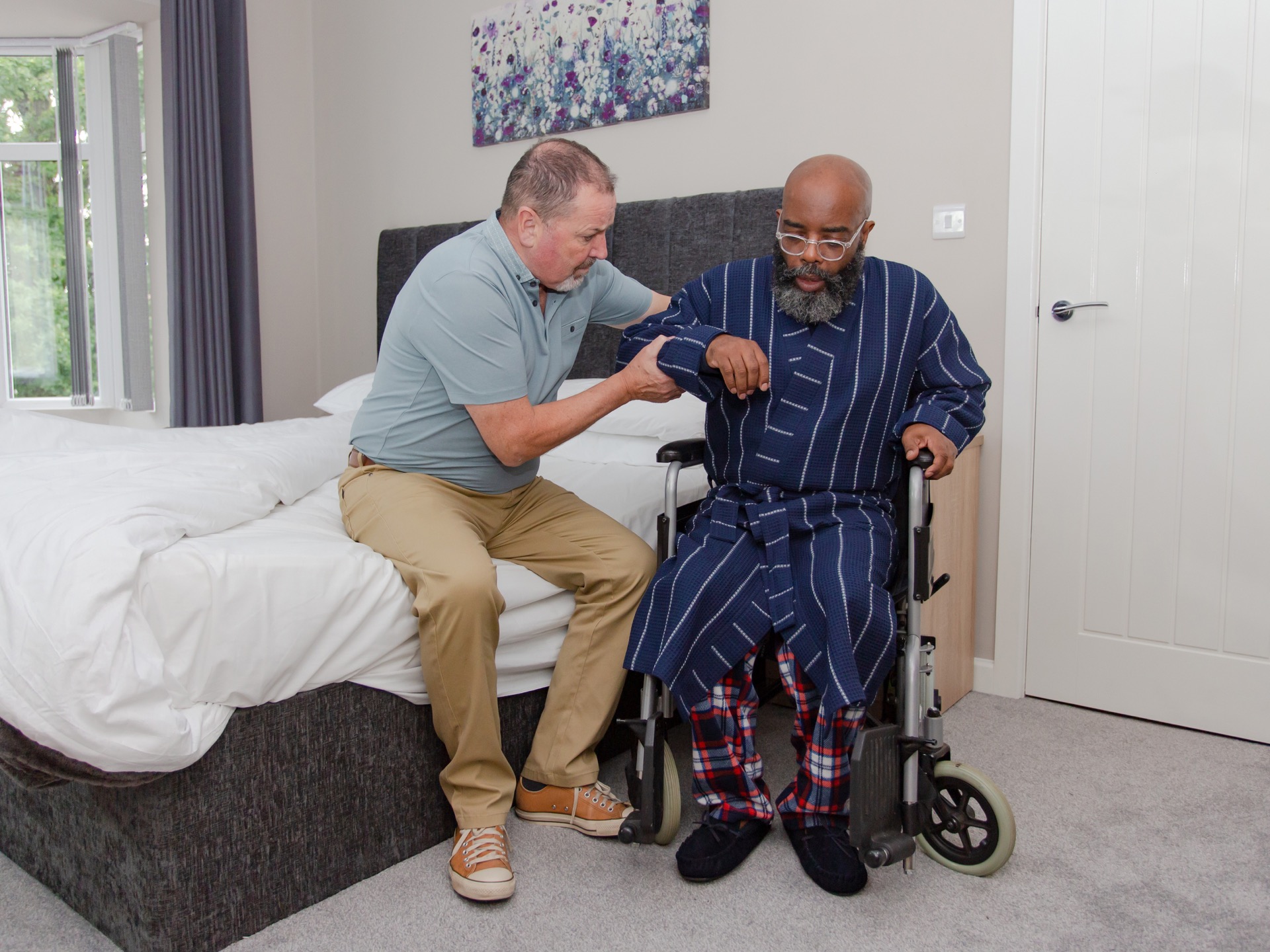
Our carers receive expert training in caring for people with a wide range of medical conditions.
Whether you’re looking for a full-time live-in carer or intermittent visits from a local care team, we provide a full range of services for people living with various illnesses. Our hospice and palliative care specialists follow the national palliative care guidelines. And, with local branches and trained carers across England and Wales, fast-track palliative care can be provided at a moment’s notice.
The benefits of home care
At Helping Hands, we firmly believe that home is the best place to receive palliative care.
In our 30+ years of providing person-centred home care, we’ve found that our customers truly appreciate being able to remain in the home that they love while receiving empathetic palliative care. Staying at home means you can continue enjoying your normal routines, home comforts and familiar sights and sounds.
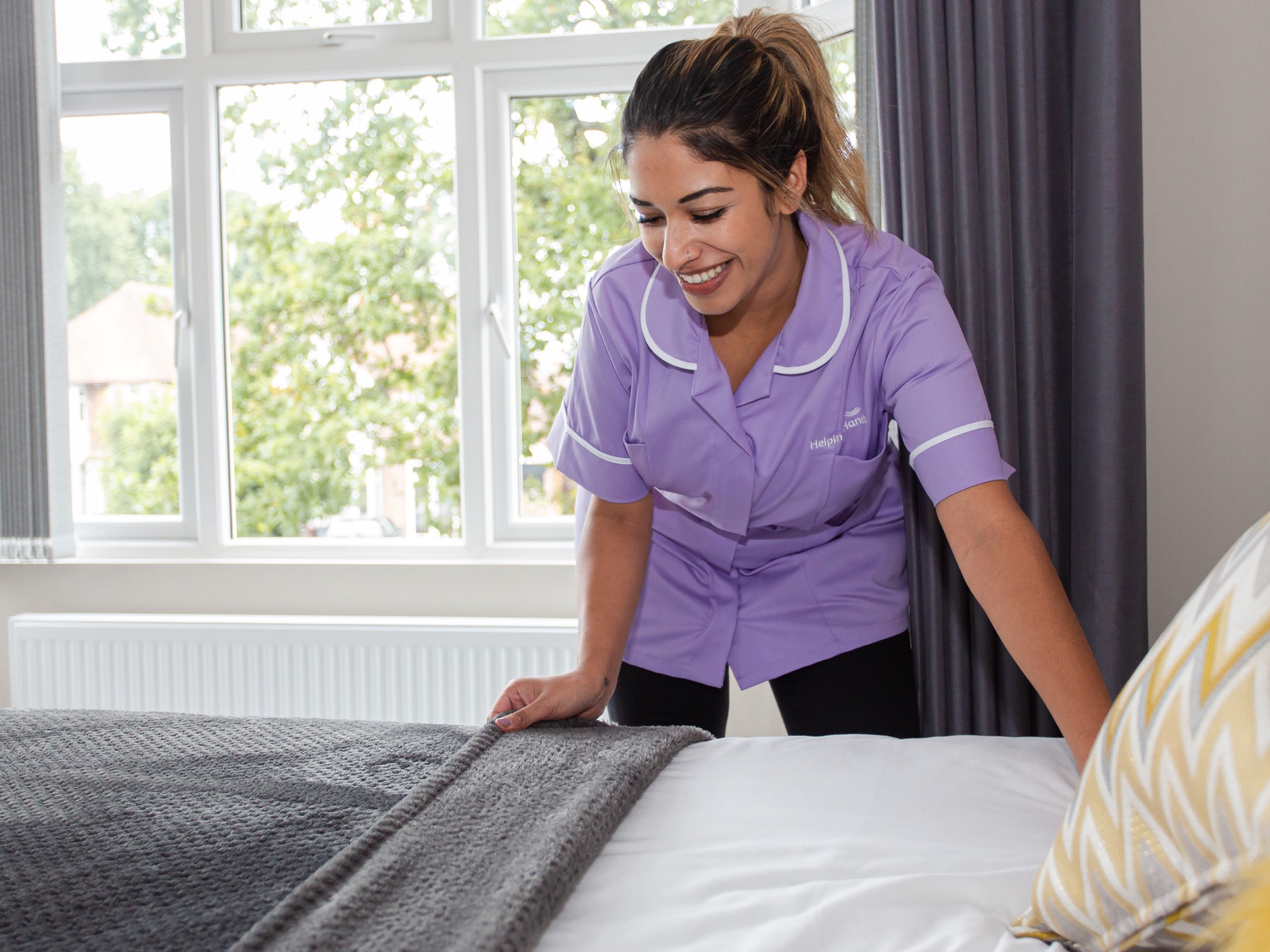
Here’s how you can benefit from palliative care at home:
Enjoy a familiar environment
Care at home allows you to spend your last months or weeks in the comfortable, familiar surroundings of your own much-loved home
Remain closer to loved ones
Staying at home means you’ll be able to set your own schedules, and spend more time seeing friends and family on your own terms
Receive one-to-one support
You’ll receive personal support from a dedicated, compassionate carer who will be completely familiar with your condition and circumstances
Cared for by specialists
All Helping Hands palliative carers receive palliative care training to deliver exceptional, compassionate support for people with a range of conditions
Personalised symptom relief
You’ll be provided with a palliative care plan that focuses specifically on your condition – whether that’s a type of dementia, cancer, or anything else
Peace of mind for the family
Palliative care provides peace of mind both for you and for your loved ones, which is something you simply can’t put a price on
Your options for palliative care at home
At Helping Hands, we’re able to offer palliative care on a visiting and live-in care basis, with every aspect of your care being independently regulated and monitored.

Visiting care is for short, frequent calls at times that suit you. Your local Helping Hands team will provide you with a type and level of care that is perfectly suited to your needs.
Starting from 30 minutes
Support when you need it
Enabling your independence
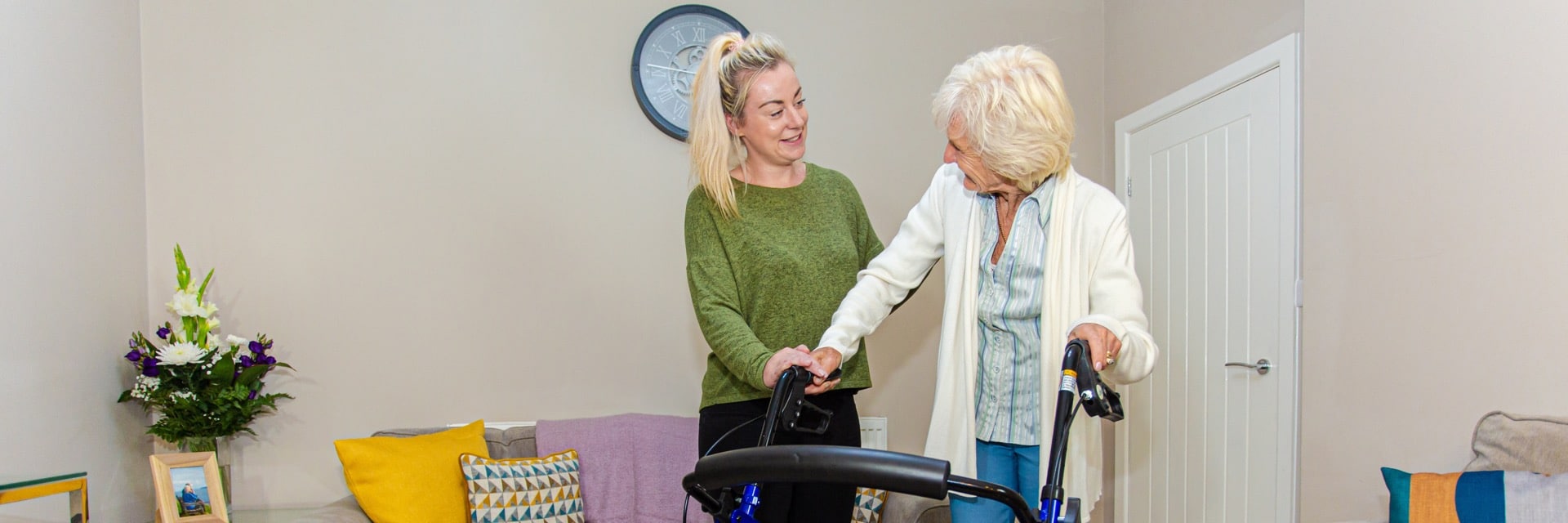
Live-in care places a specially trained live-in carer in your home to provide personalised support every day. Our live-in care is a popular option for many reasons, such as:
24-hour care
Carer chosen by you
Maintain your lifestyle
When should I have palliative care?
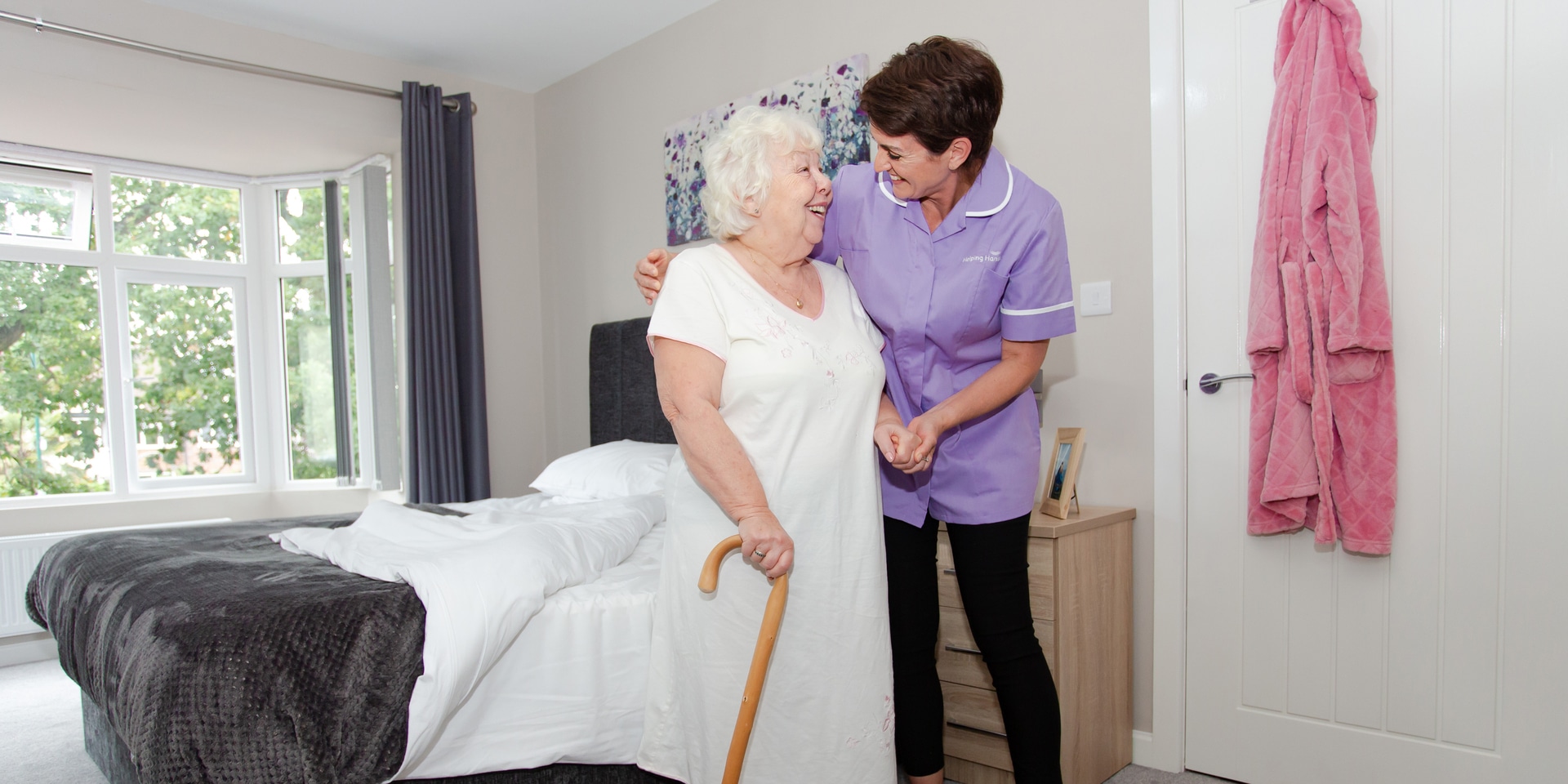
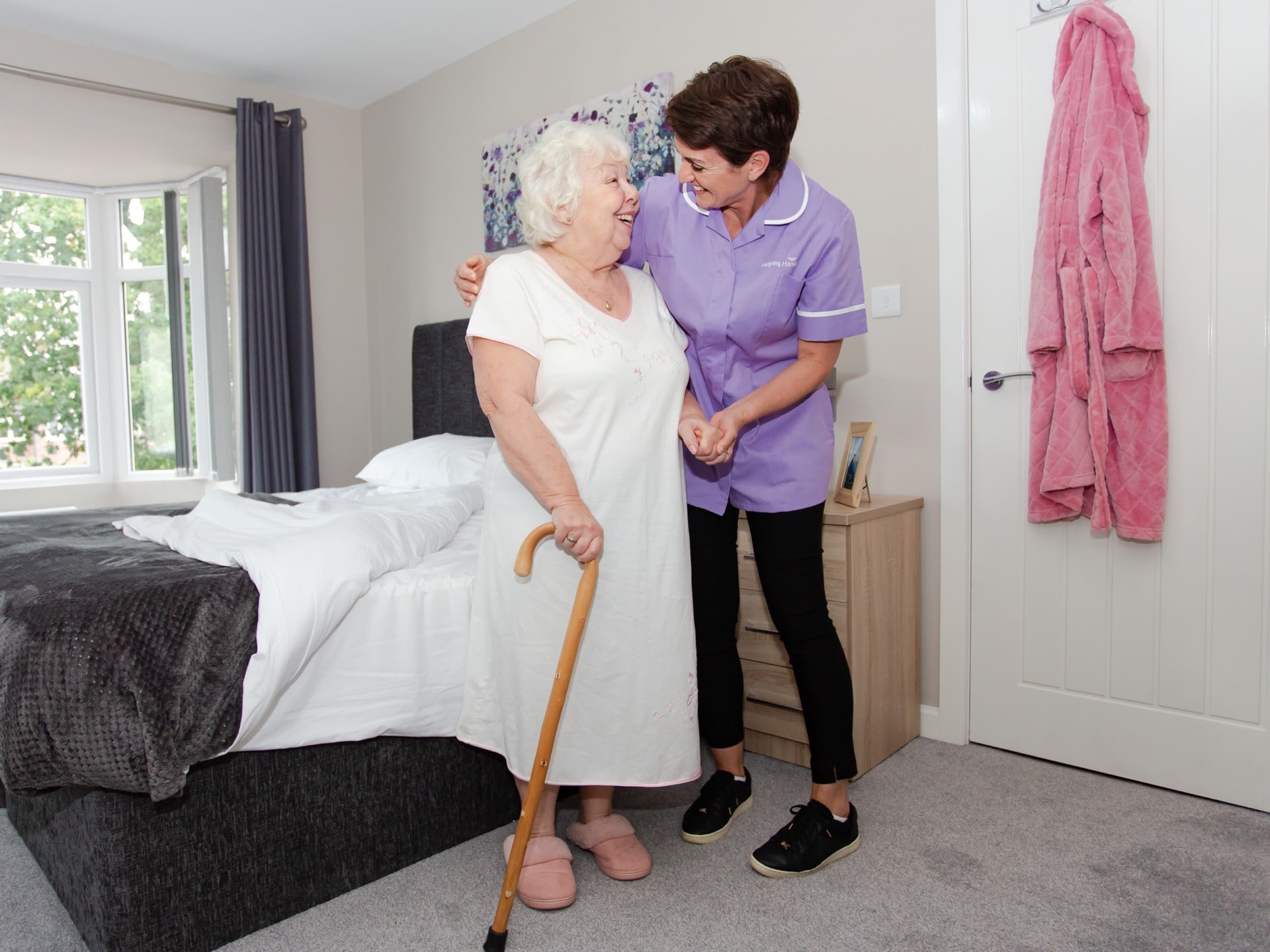
Palliative care can be offered at any point after a terminal diagnosis, including alongside other treatments, therapies and medicines aimed at controlling your illness.
Palliative care differs from end of life care in that it can sometimes last for years, so it can be difficult knowing when to start seeking palliative care. Our care experts can recommend a palliative care package to suit your needs, and you can also consult your GP to discuss your care requirements.
How soon can palliative care be arranged?
With long-term illnesses, symptoms can change rapidly and care needs can be urgent.
We offer emergency home care and respite live-in care and in many cases, we can begin arranging care within 24 hours of your initial call. This is especially useful if your situation doesn’t allow you to plan ahead. If you are currently in hospital or a residential setting, your local dedicated care manager can help your move back home.

How to arrange palliative care

Speak to our team
Call our friendly customer support team on 0330 037 6958 to discuss your options and ask any questions you may have.
Free home care assessment
Your local Helping Hands manager will arrange a visit to your home to discuss your care requirements and preferences.
Find your carer
We’ll pair you with a friendly palliative carer who meets your preferences and has the right skills and experience for your needs.
Palliative care versus hospice care
Unlike moving to a hospice, palliative care at home allows you to stay in the place where you feel most comfortable, surrounded by familiar sights and views and the people you love. With one-to-one support from a compassionate carer who is experienced in providing meaningful care, you can have specialist support and symptom relief from serious illness, whenever it is needed. Listed below are some of the many reasons why people are choosing palliative home care over hospice care.
Here's what other people are reading about:
Dementia care
Find out more about our expert dementia care services
Parkinson's support
Discover how we can support a loved one with Parkinson’s
What is palliative care?
Read more about the details involved in palliative care
Rehabilitation support
Learn how we can support you during a period of recovery
Nurse-supported care
Find out more about our nursing team and expertise
Independently regulated by the CQC / CIW
Here at Helping Hands, our live-in care service is fully regulated by the Care Quality Commission (CQC) and Care Inspectorate Wales (CIW).
All of our home care services are independently regulated and monitored, ensuring that every aspect of our support is delivered in line with industry standards and protocols.
Why is being a regulated company important?
What does regulation mean?
Our service is regularly monitored, inspected and regulated by an independent body
Why do we choose to be regulated?
You have peace of mind that your care is approved by social care’s regulating body
How does regulation affect my care?
Our regulation means a guarantee that we’ll provide you with high quality care, no matter what
What our customers think
Find out what our customers are saying about our home care.
With over 2900 Trustpilot reviews and an average score of 4.8, we’re the UK’s most widely trusted home care provider. Read some of our wonderful reviews and find out why people are choosing us to look after their loved ones.
Palliative care FAQs
-
What is palliative care?
-
Palliative care is support available to improve the quality of life of individuals who have a serious or life-threatening health condition, a common example being cancer. Palliative care addresses the person as a whole, not just their disease, and provides peace of mind to the individual and their families.
-
Who gives palliative care?
-
Palliative care is provided by our expertly trained carers. They can enable the individual to stay comfortable at home, as well as assisting their families with emotional support.
-
What is the difference between palliative care and a hospice?
-
Palliative care can begin at any time that the individual decides, whereas hospice care is applicable when treatment is no longer the goal of care – favouring the quality of life of the recipient.
-
How do you arrange palliative care?
-
To arrange palliative care, please give a member of our customer care specialists a call, who will be happy to assist you with arranging your package of care.
-
What does it mean when someone is in palliative care?
-
When someone is in palliative care, it means that they’ve received a terminal diagnosis or are living with a progressive condition but aren’t necessarily at a point where they require specialist end-of-life care.
-
Who should be referred to palliative care?
-
Palliative care is for anyone living with a terminal illness who needs support managing the symptoms of their condition and maintaining their comfort and independence.
Page reviewed by Carole Kerton-Church, on May 31, 2023.
How we wrote this page
This page has been produced referencing key insights and data from external experts, trusted medical sources and our team of in-house specialists. We have worked hard to ensure that all information is as accurate as possible and reflects current consensus at the time of writing and reviewing.
